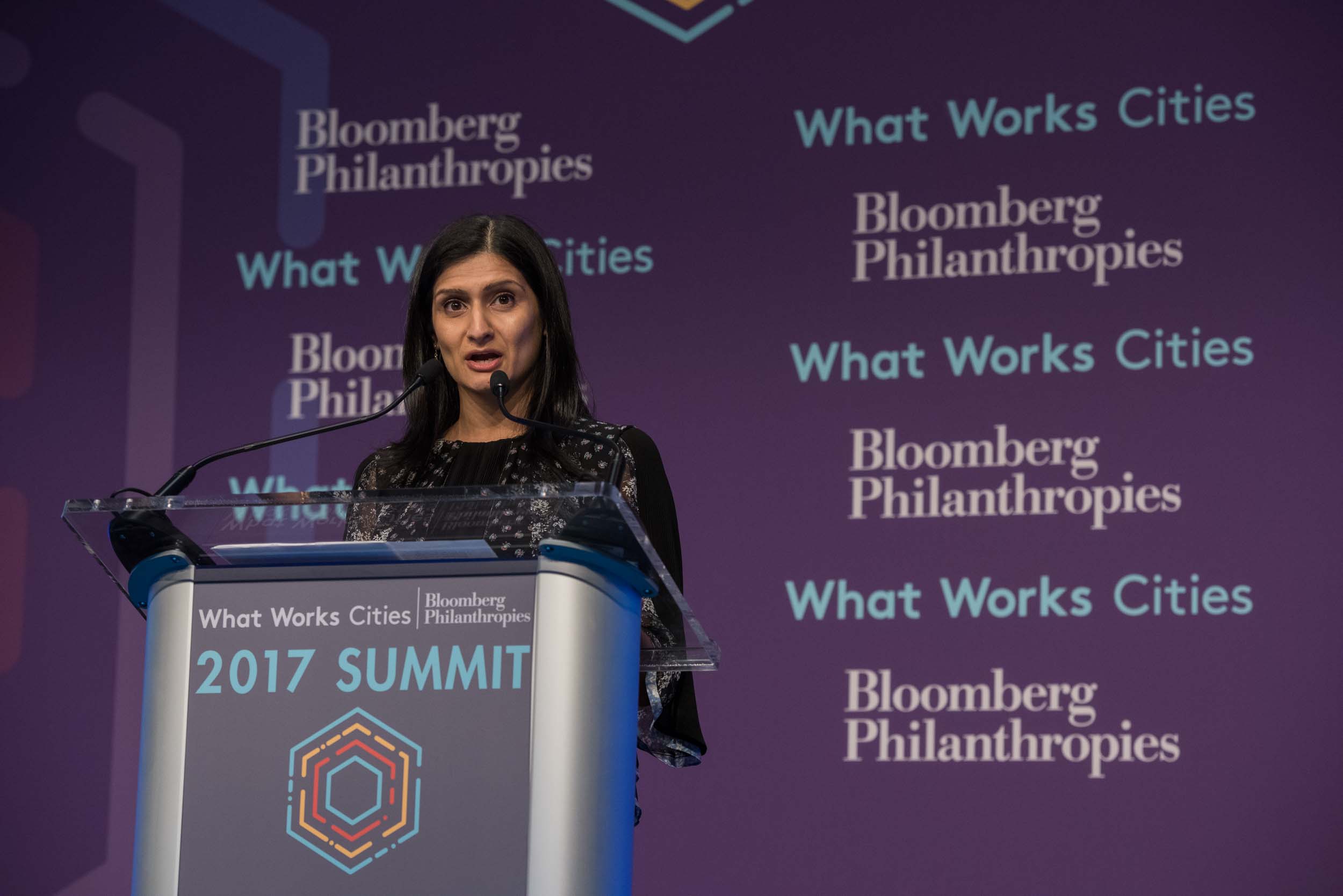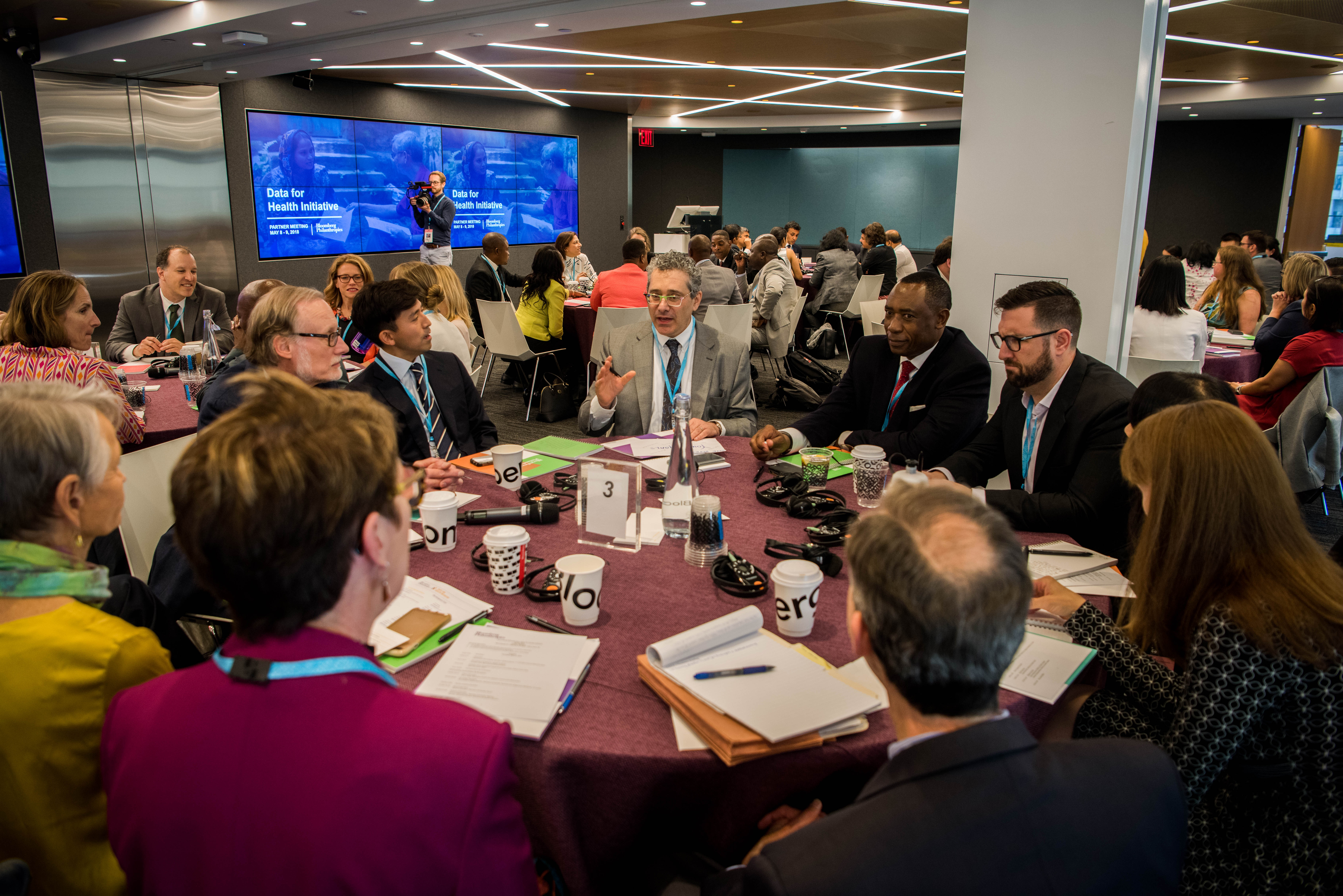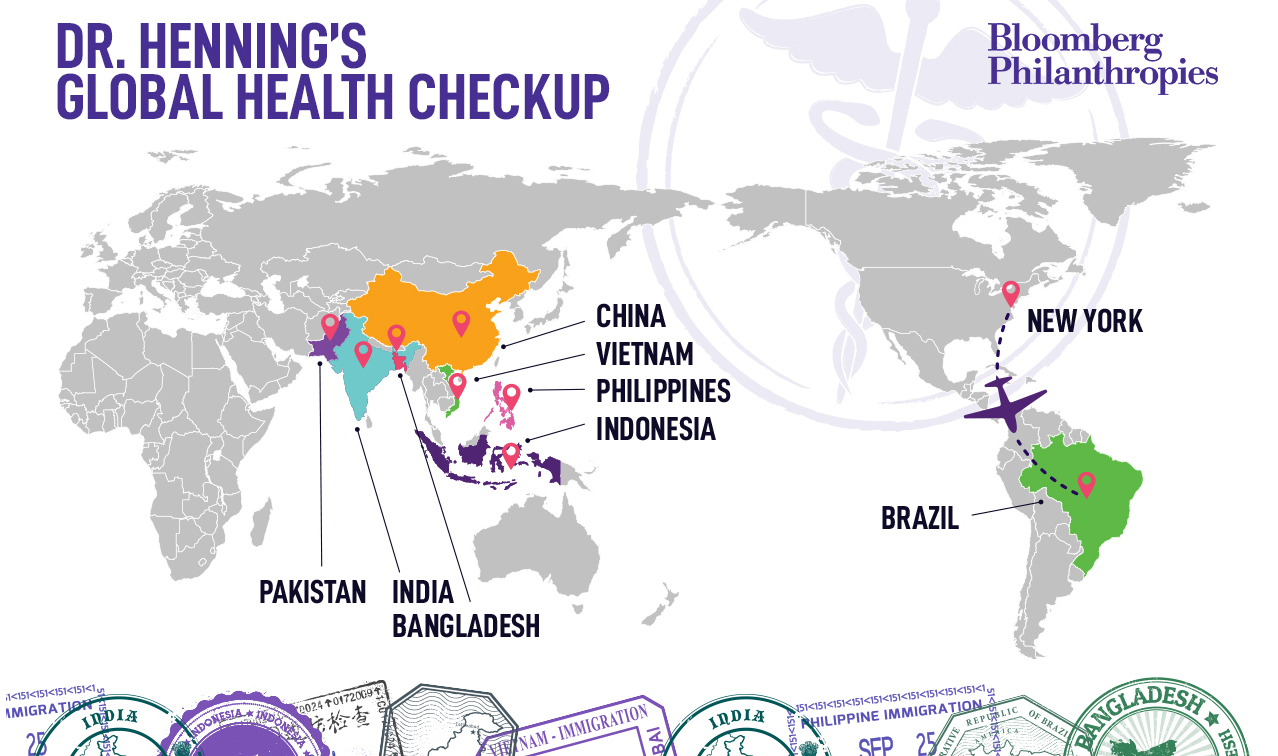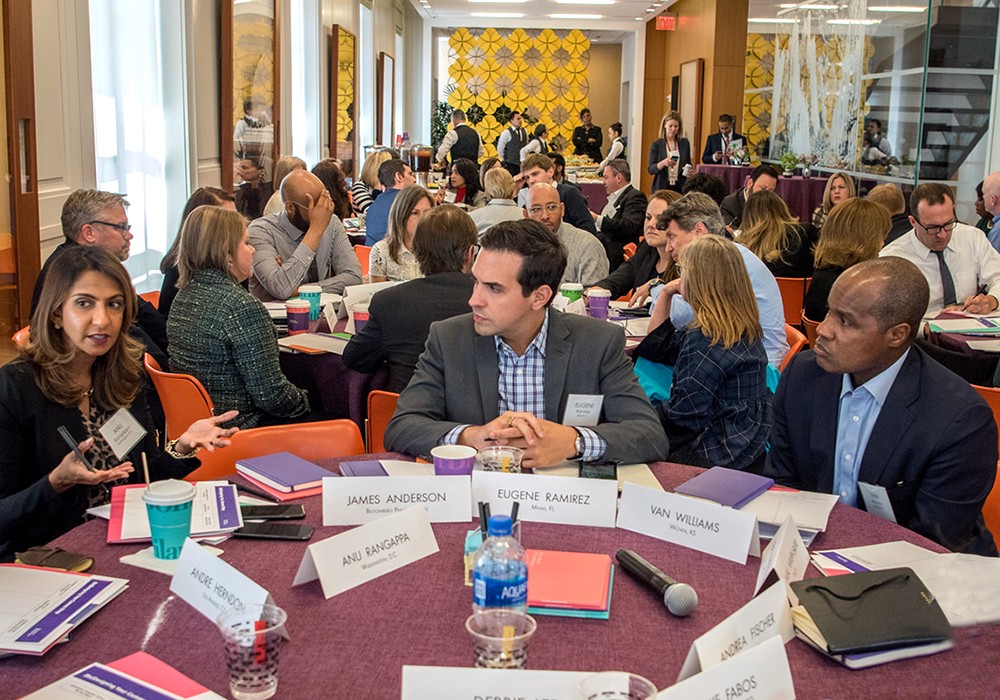
Follow the Data Podcast: Maintaining America’s Pledge – one year later
May 29, 2018
As the days grow warmer, the anniversary of the Trump Administration’s declaration of intent to withdraw from the Paris Agreement draws closer.
In the days after this announcement last year, Mike Bloomberg and California Governor Jerry Brown launched America’s Pledge, an initiative to aggregate and quantify emissions reduction efforts of states, cities, businesses, and universities in the U.S. One year after the federal government announced it would pull out of the Paris Agreement, 2,700+ U.S. cities, states, and businesses are saying, “We Are Still In.” Together, these non-federal actors have rallied their commitments in order to ensure the U.S. meets its Paris Agreement climate goals – with or without Washington.
Read more
What’s Ahead for What Works Cities
May 23, 2018
Mike Bloomberg announced an additional $42 million investment in the What Works Cities program to enhance cities’ use of data and evidence to improve resident outcomes and address the most pressing local issues. The investment, part of Bloomberg’s American Cities Initiative, is one response to what the former New York City mayor says is a mounting disdain for facts, which is making it difficult to tackle some of the country’s toughest challenges.
Read more
During “Yellow May,” Pedestrians Get the Royal Treatment
May 22, 2018
By Dr. Kelly Henning, Bloomberg Philanthropies Public Health team lead
On Monday, May 7, the coastal city of Fortaleza, Brazil rolled out a red carpet in front of City Hall. The guests of honor? Not celebrities or dignitaries — though some wore crowns — but pedestrians. Everyday people who are among the 2.5 million that call this city home.
The event was part of Fortaleza’s participation in the annual “Yellow May” festival. Supported by the Bloomberg Philanthropies Initiative for Global Road Safety (BIGRS), Fortaleza is joining cities across Brazil — and around the world — to draw attention to road safety and introduce new initiatives to make streets safer and more accessible for vulnerable road users like cyclists and pedestrians.
Read more
Follow the Data Podcast – New faces in old places: revitalizing Athens’ historic center
May 14, 2018
The heart of Athens historic center is experiencing a revival. The 27-acre district is bounded by three of Athens’ most historic squares: Syntagma, Omonia, and Monistraki. The Commercial Triangle, locally referred to as “Trigono,” is a working district, with commercial activity dating back to the 19th century.
Despite its historic and geographic significance, the neighborhood fell into disrepair in the 1980s. As a result, many buildings were vacated. By 2016, 17% of ground floor and 45% of upper floor spaces were vacant, while a survey of shopkeepers in the area found that 50-70% believed graffiti, lack of cleanliness, and illegal parking were serious issues. While there were pockets of economic activity, the neighborhood was not pedestrian-friendly and it was struggling to attract new investment.
Read moreTaking Care of Moms on Mother’s Day & Every Day
May 13, 2018
By Dr. Neena Prasad, Director of Maternal and Reproductive Health Program, Bloomberg Philanthropies
Around the world, approximately 830 women die daily from preventable causes related to pregnancy and childbirth. Developing countries have an overall maternal mortality ratio of 239 deaths per 100,000 live births, while in developed countries that ratio is 12 deaths per 100,000 live births. Ninety-nine percent of maternal deaths occur in developing countries.
These sobering statistics underscore the healthcare disparities between high- and low-income countries, especially when it comes to women’s health—and the dire need to address them.
Read more
Collecting Data – a Matter of Life and Death
May 10, 2018
By Dr. Kelly Henning, Bloomberg Philanthropies Public Health team
Nearly 30 million deaths go unregistered without a cause of death each year. Put another way, more than half of deaths globally aren’t recorded with any usable information. And, nearly 40 percent of the 128 million babies born each year are not officially registered. Without this crucial data, a government cannot create policies that lower risk for disease and positively influence the health and wellness of its citizens. This lack of data can result in errant or misinformed health policy that harms the economy, education, democracy, and other vital attributes of a robust society.
Read moreFollow the Data Podcast: Gone Fishing
May 1, 2018
The United Nations International Coral Reef Initiative has declared 2018 the International Year of the Reef. Coral reefs are home to one in every four fish in the ocean, and are a critical backbone of ocean ecosystems. Unfortunately, climate change and destructive fishing practices threatens to destroy 90 percent of reefs in the next three decades.
As the demand for fish continues to grow, overfishing and damaging fishing practices, like bottom-trawling and illegal fishing, are destroying coral reefs and endangering the primary protein source for a billion people and thousands more who rely on fishing for income. At Bloomberg Philanthropies, our Vibrant Oceans Initiative is working to replenish fish populations and create a more sustainable environment.
Read more
Global Health Checkup: Seven Steps to Tackle NCDs in Brazil
April 30, 2018
by Dr. Kelly Henning, Bloomberg Philanthropies Public Health team lead
Brazil, a country known for its spectacular coastline, football prowess, and vibrant culture, has also become known in the public health community for its progressive action to prevent noncommunicable diseases.
On the first stop of my “Global Health Checkup,” I was not only wowed by Rio’s sprawling beaches and Brasilia’s magnificent architecture but also by the incredible work public health leaders are doing to help their citizens lead healthier lives.
Read moreFighting Secondhand Smoke in Bengaluru, India
April 26, 2018
By Dr. Vishal Rao, Chief of Head Neck Surgical Oncology at Healthcare Global Enterprise Cancer Hospital in Bengaluru, India
Bengaluru is a city on the rise. In India’s southern Karnataka state, the city has become the tech hub of the global south, with a burgeoning start-up community and an Asian base for the world’s largest technology companies. But a smoke-filled cloud hangs over Bengaluru’s success. A national law prohibiting smoking in public places has not led to smoke free spaces, and many individuals are unaware of the harms of exposure to secondhand smoke in workplaces and homes.
Bengaluru is fighting to change the status quo. As part of the Partnership for Healthy Cities – supported by Bloomberg Philanthropies, Vital Strategies and the World Health Organization –Bengaluru has committed to becoming a smoke-free city.
Read more
4 strategies that are defining the future of city communications
April 25, 2018
Last week, Bloomberg Philanthropies brought 54 communications leaders from city halls in the U.S. and the U.K. to New York City to discuss these topics and more. In panel conversations, workshops, and one-on-ones, they traded tips on social media and storytelling, considered the changing media industry, and learned the latest and best practices for organizing a comms shop. Here are four strategies that emerged last week that are likely to reflect where the field of city-government communications is headed.
Read more